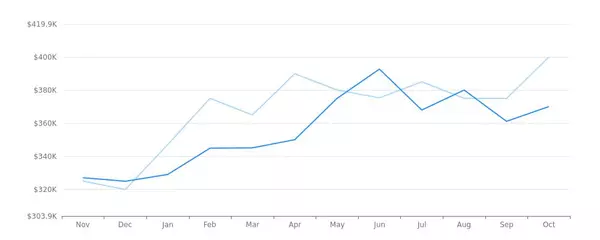Investing in Real Estate for Retirement Income

Investing in real estate can be a sound retirement strategy as it provides a steady stream of income and potential for future capital growth. Whether you are a seasoned investor or a first-time homebuyer, understanding the ins and outs of the market, navigating the mortgage process, and keeping up-to-date with the market updates can increase your possibilities of securing a viable investment for your golden years.
One of the critical advantages of real estate investment for retirement income is the potential for passive income. Rental properties can generate a steady cash flow that can supplement your retirement savings. Unlike other types of investment, the income from rental properties is often more stable and predictable, making it an excellent option for retirees.
Real estate investment also offers potential for capital appreciation over time. While market fluctuations can impact property values in the short term, real estate has historically increased in value over the long term. This gives investors the opportunity to enjoy a significant return on their investment when they decide to sell.
Additionally, the real estate market is often less volatile than the stock market. While both have their ups and downs, real estate values tend to be more stable over time. This stability can be particularly appealing to retirees who are looking for a more predictable investment strategy.
Securing a mortgage for a real estate investment can also have tax advantages. Mortgage interest is usually tax-deductible, and this can significantly reduce your taxable income. Furthermore, if you rent out the property, expenses related to property management and maintenance can also be deducted from your taxable income.
However, while investing in real estate for retirement income has its benefits, it also requires due diligence and understanding of the market. Keeping up with market updates is crucial. It will inform you about property price trends, rental yields, interest rates, and broader economic factors that could impact your investment strategy.
As a buyer, you need to consider the location of the property, the state of the property market in that area, the potential rental income, and the costs of property management and maintenance. It is also essential to ensure that you can cover the mortgage payments, especially in the early stages of your investment when rental income may not cover all your expenses.
Additionally, it is advisable to consult with a real estate professional or financial advisor to help guide you through the process. Investing in real estate is a significant financial commitment, and having a professional on your side can provide invaluable advice and insight.
In conclusion, investing in real estate for retirement income can offer several benefits, including a steady income stream, potential capital appreciation, and tax advantages. However, it also requires careful planning and understanding of the market. By staying informed about market updates, understanding the mortgage process, and seeking professional advice, you can increase your chances of securing a profitable investment for your retirement.
For more information contact Shawn Wilmoth REALTOR®
ShawnWilmoth.com
Categories
- All Blogs (1000)
- Airbnb Realtor (13)
- Barndominium (6)
- Buying a home (57)
- California Buyers (17)
- Commercial Broker (2)
- Commercial Property (33)
- DR Horton Homes (5)
- East Tennessee (59)
- Experienced Realtor (40)
- Experienced Tennessee Realtor (67)
- For-Sale By Owner (24)
- FSBO (17)
- Gatlinburg (30)
- Gatlinburg Cabins for Sale (2)
- Gatlinburg Rental Homes for Sale (6)
- How to pick a realtor (14)
- Industrial Property (9)
- Invesment Real Estate Gatlinburg (4)
- Investment Property Realtor (27)
- Knoxville (66)
- Knoxville Jobs (1)
- Knoxville Zillow Reviews (1)
- Listing your home (30)
- Mobile Homes (7)
- Modular Homes (9)
- Morristown (28)
- Mortgage (3)
- New build homes (24)
- Price of Homes in Knoxville (10)
- Realtor Blog Feed (3)
- Reccomended Tennessee Realtor (48)
- Refinancing (2)
- Rental Property (7)
- Retail Building sites (4)
- Retail Land for Sale (3)
- Selling a home (19)
- Short-Term Rentals (2)
- Smithbuilt Homes (2)
- Strawberry Plains (1)
- Tennessee (39)
- Tennessee Lenders (3)
- tract homes (1)
- Vacant Commercial Land (4)
- Warehouse for Sale (1)
- Zillow Agent (1)
Recent Posts










GET MORE INFORMATION
Agent | License ID: 354366
308 N PETERS RD. STE 225, KNOXVILLE, TN, 37922, United States
